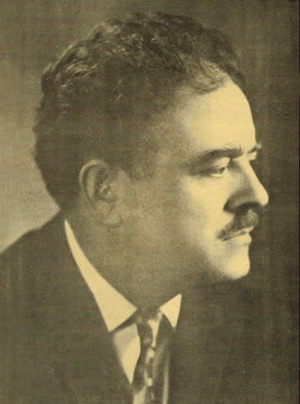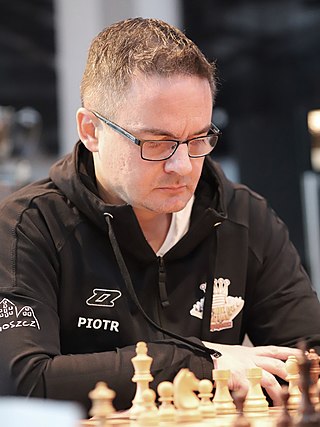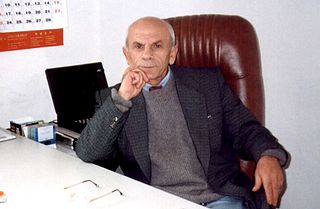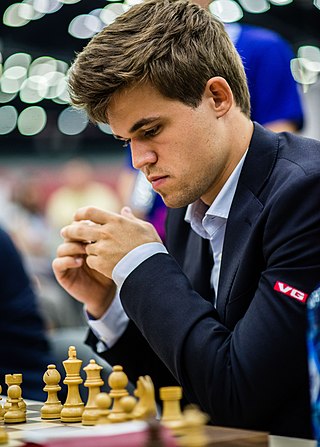Meetings

Locations and number of delegates for meetings of the PCCC / World Congresses of Chess Composition (WCCC): [4]
The World Federation for Chess Composition (WFCC) is the highest body governing the official activities in the chess composition. It was known as the Permanent Commission of the FIDE for Chess Compositions (PCCC) from its inception in 1956 until October 2010. [1] It is now independent from FIDE, but both organisations are cooperating. Currently 41 countries are represented in the WFCC.
The principal goal and activities of the WFCC include:
The WFCC is led by its president, currently Marjan Kovačević, previously by Harry Fougiaxis, Uri Avner, John Rice, Bedrich Formánek, Klaus Wenda, Jan Hannelius, Gerhard Jensch, Comins Mansfield, Nenad Petrović and Gyula Neukomm.
The WFCC delegates are nominated by national problem societies and chess problem specialists. [2] The original PCCC was created in 1956, with the first meeting at Budapest in 1956. Subsequently, the commission has met every year except 1963, 1970 and 2020. The 50th anniversary meeting was at Rhodes in 2007. [3]

Locations and number of delegates for meetings of the PCCC / World Congresses of Chess Composition (WCCC): [4]

A chess problem, also called a chess composition, is a puzzle set by the composer using chess pieces on a chess board, which presents the solver with a particular task. For instance, a position may be given with the instruction that White is to move first, and checkmate Black in two moves against any possible defence. A chess problem fundamentally differs from over-the-board play in that the latter involves a struggle between Black and White, whereas the former involves a competition between the composer and the solver. Most positions which occur in a chess problem are 'unrealistic' in the sense that they are very unlikely to occur in over-the-board play. There is a good deal of specialized jargon used in connection with chess problems.

Genrikh Kasparyan was a Soviet chess player. He is considered to have been one of the greatest composers of chess endgame studies. Outside Armenia, he is better known by the Russian version of his name Genrikh Moiseyevich Kasparyan or Kasparian.
The World Chess Solving Championship (WCSC) is an annual competition in the solving of chess problems organized by the World Federation for Chess Composition (WFCC), previously by FIDE via the Permanent Commission of the FIDE for Chess Compositions (PCCC).
International Judge of Chess Compositions is a title award by FIDE via the World Federation for Chess Composition to individuals who have judged several chess problem or study tournaments and who are considered capable of judging such awards at the highest level.

The FIDE Albums are publications of the world chess governing body, FIDE, via the Permanent Commission of the FIDE for Chess Compositions (PCCC), containing the best chess problems and studies of a certain period.
A chess composer is a person who creates endgame studies or chess problems. Chess composers usually specialize in a particular genre, e.g. endgame studies, twomovers, threemovers, moremovers, helpmates, selfmates, fairy problems, or retrograde analysis. Moreover, composers have their own preferred style of composing, allowing their sorting according to composition schools.
Nenad Petrović, was a Croatian chess problemist.

Gia Nadareishvili was a Soviet chess composer of Georgian nationality, and author of many books on chess studies.

Piotr Murdzia is a Polish chess International Master, International Solving Grandmaster, and eight-time world champion in chess problem solving. He is known as one of the best chess problem solvers in the world.
The World Championship of Chess Composition is a triennial competition for composers of chess problems and studies. Organised in the past by FIDE via the Permanent Commission of the FIDE for Chess Compositions (PCCC), it is currently held by the World Federation for Chess Composition (WFCC). The official title is World Championship in Composing for Individuals (WCCI).

Iuri Akobia was a Georgian composer of chess endgame studies and chess problems. For most of his working life he was a radio communications engineer in the National Center for Radio and TV of Georgia, and was Chief Engineer from 1975 until 1996.
Vitaly Alexandrovich Chekhover was a Soviet chess player and chess composer. He was also a pianist.

A chess title is a title regulated by a chess governing body and bestowed upon players based on their performance and rank. Such titles are usually granted for life. The international chess governing body FIDE grants several titles, the most prestigious of which is Grandmaster; many national chess federations also grant titles such as "National Master". More broadly, the term "master" can refer to any highly skilled chess player.

Michel Caillaud is a French chess problemist.

Harold van der Heijden is a Dutch composer of chess endgame studies. He was born in Veghel, The Netherlands, on 18 December 1960. By profession, after finishing his PhD in 2009, he is head of the Research and Development laboratory of a veterinary institute.

FIDE titles are awarded by the international chess governing body FIDE for outstanding performance. The highest such title is Grandmaster (GM). Titles generally require a combination of Elo rating and norms. Once awarded, titles are held for life except in cases of fraud or cheating. Open titles may be earned by all players, while women's titles are restricted to female players. Many strong female players hold both open and women's titles. FIDE also awards titles for arbiters, organizers and trainers. Titles for correspondence chess, chess problem composition and chess problem solving are no longer administered by FIDE.
Bedrich Formánek is a Slovak chess composer.
Kari Valtonen is a Finnish chess problemist.
{{citation}}: CS1 maint: location missing publisher (link)